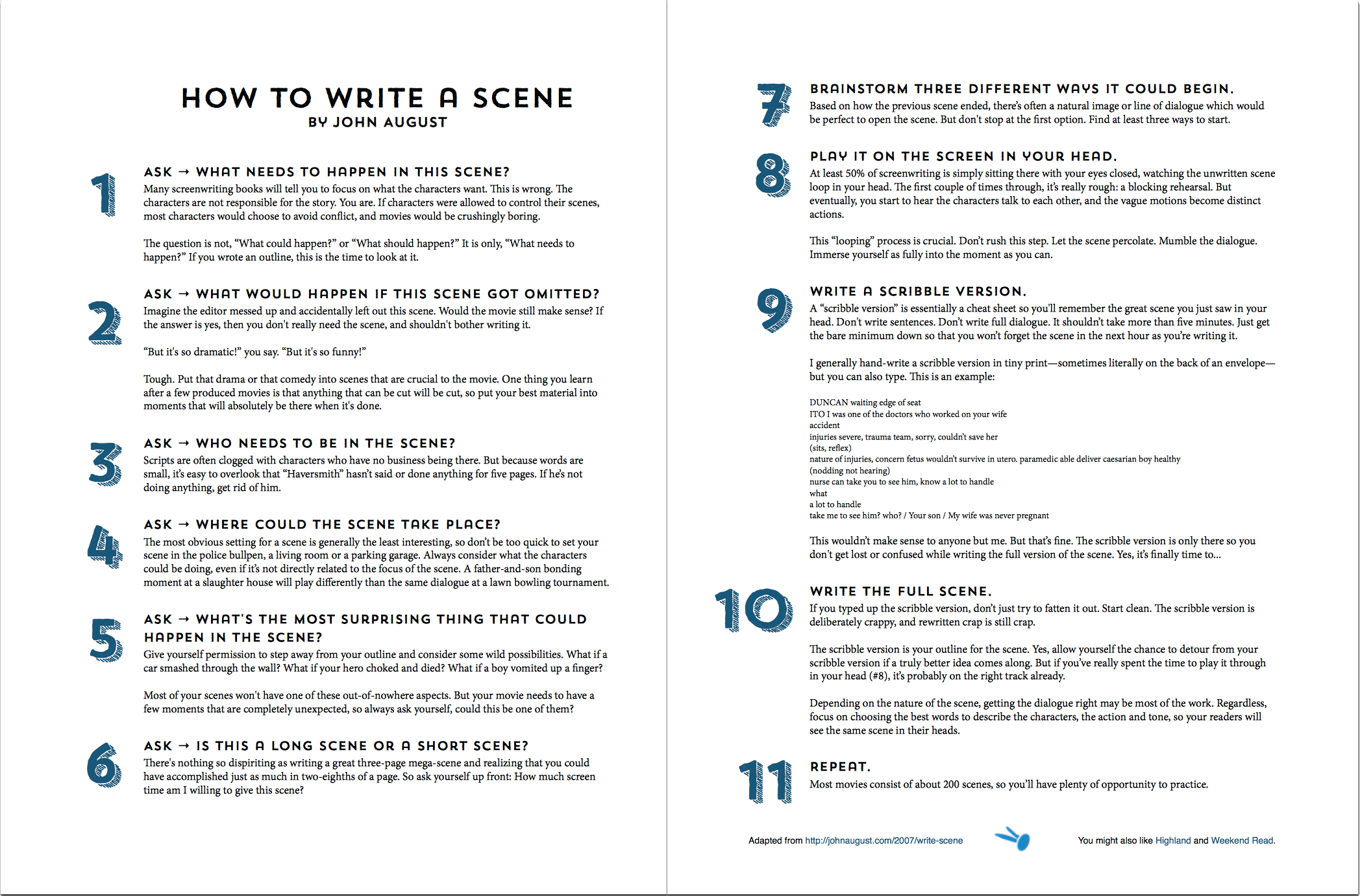My 2007 post on How to Write a Scene got recirculated in infographic form last year, which featured only the bullet points.
Both versions are useful. The blog post is detailed; the infographic is handy. But screenwriter Zak Penn asked for something in-between:
Can you send me PDF of your scene writing checklist? Want to use when I speak to students, thought it was excellent.
It’s a good idea. So here’s the original post, slightly edited and reformatted to fit onto two pages you can print or email:
Anyone is welcome to use it. I just ask that if you distribute it, please keep my name and the link on it.
And because you’ll ask, the fonts are Minion Pro and Trend Hand Made.
